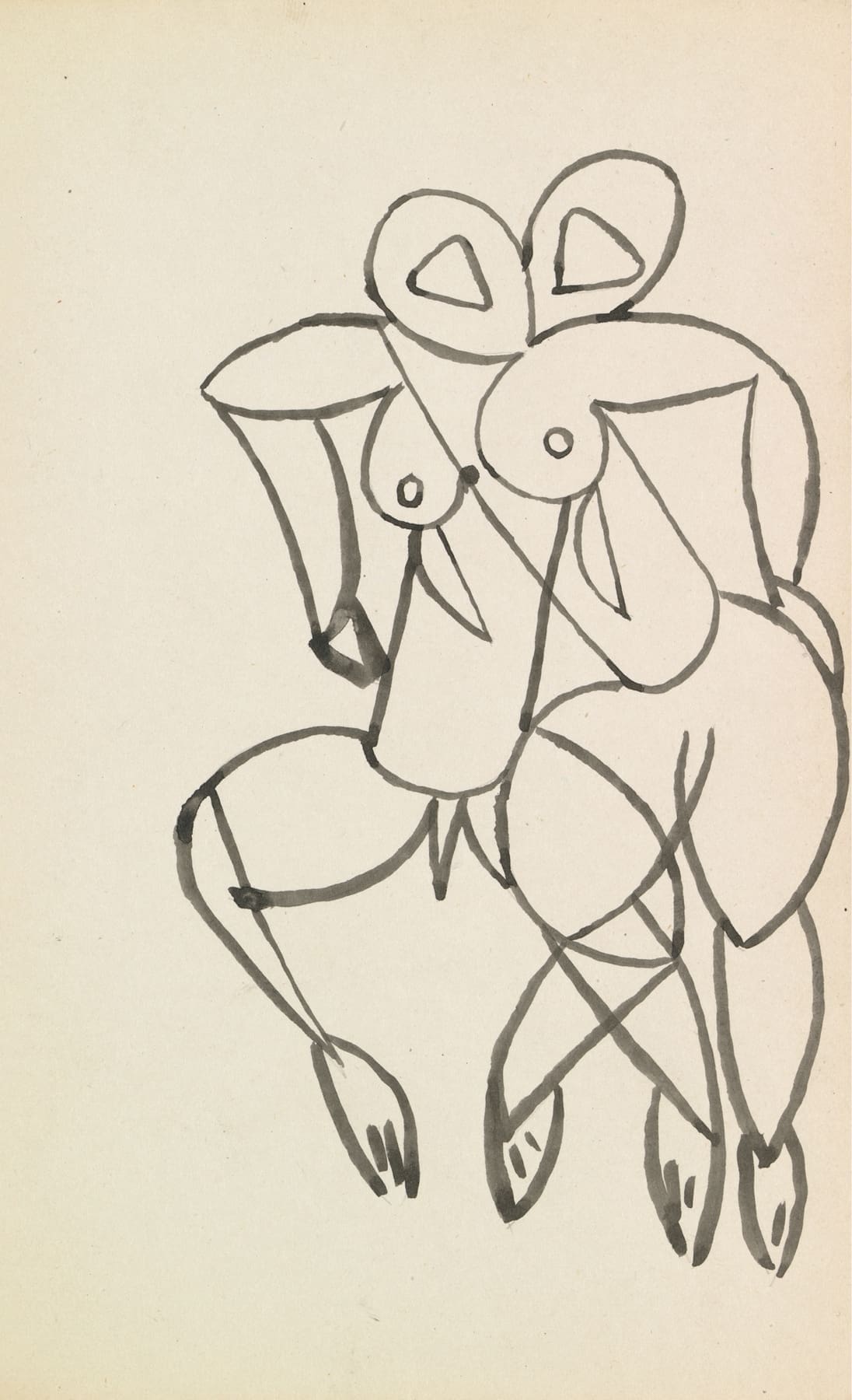M
Many of the most intense and destructive arguments roiling our cultural waters right now arise from one long-standing problem: the difficulty of finding appropriate words to describe coitus. And in beginning to describe the problem, I have already used a word that will sound odd to many people: such an abstract and clinical word to describe so intensely physical an act.
But what might I have written instead? If you look at the Oxford English Dictionary for options, you’ll find no shortage of them, ranging across the past six centuries. Some—for the sake of sensitive readers I shall spare examples—are frankly crude, and meant to be. Others share with “coitus” a Latinate distance from the act and a reliance on words that connote bringing two things together: congress, conjunction, copulation. Some indulge in a nudge-nudge wink-wink periphrasis: “the service of Venus” or “the last favour,” the latter even more delicate in French—la dernière faveur. The British seem to be fond of broad humour, both in the past (“playing at hot cockles”) and more recently (“rumpy-bumpy”). And here’s perhaps the most abstract euphemism of them all: “the other thing.”
One could go on. But despite this inexhaustible variety, around a century ago our journalists and general-audience writers settled on a single dominant term: “sexual intercourse.” Not an important thing in itself—but it led to something consequential: the shortening of “sexual intercourse” to “sex.”
Why do I call that development consequential? Because the word “sex” already had a common meaning. As the OED puts it in definition 1a of that word:
Either of the two main categories (male and female) into which humans and many other living things are divided on the basis of their reproductive functions; (hence) the members of these categories viewed as a group; the males or females of a particular species, esp. the human race, considered collectively.
(The first example of this usage is in the Wycliffite English Bible, ca. 1382.) All very straightforward—but when “sex” comes to be the overwhelmingly dominant word for the service of Venus, confusion is sown. Now it’s hard to use “sex” to speak of “the two main categories (male and female) into which humans and many other living things are divided on the basis of their reproductive functions” without making your listeners think of . . . the other thing.
Thus the search began to find an alternative way to talk about “the two main categories”—the sexes. And we all know what word has emerged as the solution to that problem: “gender.” And if the emergence of “sex” as the standard word for coitus was consequential, this second emergence has become momentous.
Why? Let’s look at the OED’s definition 1a for “gender”:
In some (esp. Indo-European) languages, as Latin, French, German, English, etc.: each of the classes (typically masculine, feminine, neuter, common) of nouns and pronouns distinguished by the different inflections which they have and which they require in words syntactically associated with them; similarly applied to adjectives (and in some languages verbs) to denote the appropriate form for accompanying a noun of such a class. Also: the fact, condition, or property of belonging to such a class; the classification of language in this way.
That is to say, “gender” is fundamentally a grammatical term—and, as we know from languages that use gendered formations more liberally than English does, these grammatical traits have no connection whatsoever with biological sex. (In German, for instance, the days of the week are masculine, numbers are feminine, and colours are neuter.) Now, to be sure, “gender” has never been used only in grammatical contexts: speaking of the human genders goes back a long way, though the OED says such usage is often humorous, and it is pretty rare. The grammatical meaning was, until quite recently, overwhelmingly dominant.
Why does this matter? Because of something we were taught by the great Russian philologist and thinker Mikhail Bakhtin: that words never altogether shed their histories. As he wrote in a notebook near the end of his life, “Even past meanings, that is, those born in the dialogue of past centuries, can never be stable (finalized, ended once and for all)—they will always change (be renewed) in the process of subsequent, future development of the dialogue. At any moment in the development of the dialogue there are immense, boundless masses of forgotten contextual meanings, but at certain moments of the dialogue’s subsequent development along the way they are recalled and invigorated in renewed form (in a new context).” This “recalling” is precisely what is at work in the redeployment of “gender” in a new context: it retains its grammatical character even when used to mean something quite different.
Consider this: As noted above, grammatical gender is often arbitrary. There’s no intrinsic reason why numbers should be feminine and colours neuter. Gender in such cases is, as it were, simply assigned—an idea that returns in new form when people say that “Leslie was assigned female at birth.” The arbitrariness is carried over to its new use. Conversely, “sex” (in its traditionally dominant sense) is anything but arbitrary: sexual reproduction is the most common way that new animals, plants, and fungi are produced.
To talk about our current debates as debates about “gender” is already to concede the most essential point at issue: whether maleness and femaleness are rooted in biological reality or are basically linguistic, arbitrary signifiers.
We are now in a position to understand how we got into the situation we’re in. When “sex” became the most common term for coitus, we found ourselves needing a different term to describe the distinction between male and female. And when in turn “gender” emerged as that term, it was inevitably accompanied by the arbitrary character that it possesses in its grammatical context. Moreover, that emergence occurred in a social world that had come (for reasons too complex to be traced here) to perceive the human individual as the locus of meaning and value—as a rational actor choosing its own meanings, its own values. The sense of arbitrariness embedded in the term “gender” is a perfect fit for such a society; indeed, perhaps this is why “gender” emerged as the preferred substitute for “sex” to describe what male and female are.
Therefore, to talk about our current debates as debates about “gender” is already to concede the most essential point at issue: whether maleness and femaleness are rooted in biological reality or are basically linguistic, arbitrary signifiers. The first step in making these debates more productive is to call attention to the philological facts: the ways that our language for discussing these matters has changed, giving a certain structure to our debates.
But what, specifically, do I mean by “these matters”? Sometimes it can be hard to tell precisely what we’re arguing about. And here I would commend a tactic I have developed over several decades of teaching college students, who have a tendency to rely too heavily on key terms they haven’t fully understood. “You keep using that word,” I say to them. “I am not sure that it means what you think it means. But help me out: tell me again what you’re trying to say—without using that word.”






